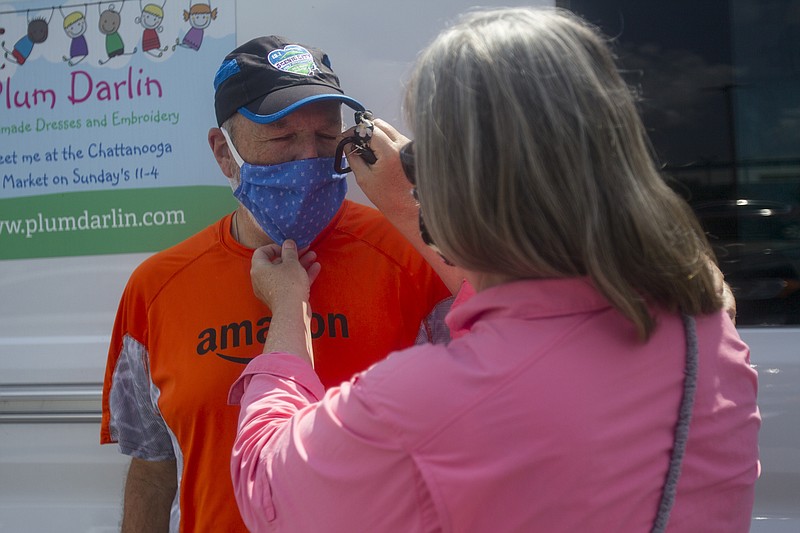In 2019, after Tennessee legislators passed a law to curb paid, quota-driven, last-minute voter drives that mound election officials with incomplete and errant information they don't have the time to verify before an election, the reaction was what we've come to expect.
"That's voter suppression."
"The disenfranchisement is real."
"It's going to be extremely difficult to get people registered to vote."
Those were the comments of real people in a Pew article about the law.
It would follow, then, that in the controversial 2020 election, a massive outcry would have arisen in this state about the difficulties that residents encountered to get registered to vote. Or the difficulties to vote. Or of people being disenfranchised. Or of voter suppression.
But, concerning the state vote, all that was heard were crickets.
And, in case those still pushing the false narrative have forgotten, a record number of more than 3 million Tennesseans voted in November 2020.
If state election officials and Republican legislators were trying to suppress the vote with their moves, they did a poor job.
Today, with elections coming up in Hamilton County in May, August and November, the same they're-trying-to-steal-our-vote folks have been active.
Locally, they were triggered by the word "redistricting," which simply meant that the decennial census required the Hamilton County Commission to adjust political district boundaries based on population shifts over the last 10 years. But instead of "redistricting," they heard "disenfranchising."
As it turned out, the process was judged the most transparent in recent history.
They then turned their eyes on the Hamilton County Election Commission, which had been falsely accused by state Rep. Yusuf Hakeem of voter suppression in 2020.
The election commission, it was said, was going to eliminate some precincts.
The hue and cries went up again.
Unfair! You're cheating us! You're taking away our vote!
As it turned out, the board was eliminating precincts, precincts like those where there were four, six, six, three, zero, three and zero registered voters. They would be combined with other precincts. Good stewardship demanded such.
However, even with 47 fewer precincts, there would eight additional polling places, bringing the total from 72 to 80.
On Monday, this newspaper reported the local election commission had sent out more than 5,000 notices asking about potential changes of address.
Expect the same crowd to be triggered over this.
Yet, it's a standard procedure taken by election commissions throughout the state to perform voting list maintenance, and some of the reasons those 5,342 folks are getting a green card are because previous mail from the election commission was returned, an address change was reported to the commission by the United States Postal Service, or because discrepancies exist between voter registration addresses and residential addresses of record.
Those voters will be on inactive status until the election commission receives an updated response. If there is no response within 30 days, the voter may have to vote using a provisional ballot in the upcoming election. If they don't vote or update their registration before two federal elections occur, their registration will be canceled.
That's not voter suppression. That's simply proper maintenance of a county's voter rolls.
Lest any of the triggered crowd still think the commission is trying to fool them with these green cards, combined precincts, new polling places and redistricting, all registered voters in the county are scheduled to receive a notice in mid-March detailing in which district they now live, the location of their polling place and the name of the correct precinct in which they reside.
Voting information also will be posted on the commission's website, its social media sites and on buses in downtown Chattanooga.
Let's be clear. No one in Hamilton County is trying to keep anyone from casting a legitimate vote in any of the three elections in 2022.
And for those just as triggered on the other side about voting fairness, we especially like this little nugget: In the May election, each absentee ballot the commission sends out will have a new watermark. When the ballot is returned, in addition to the signature verification already required, it also must have that new watermark or it will not be valid.
Despite all the noise to the contrary, it appears Hamilton County and Tennessee will continue to have the safe, secure and fair elections we've come to expect.
